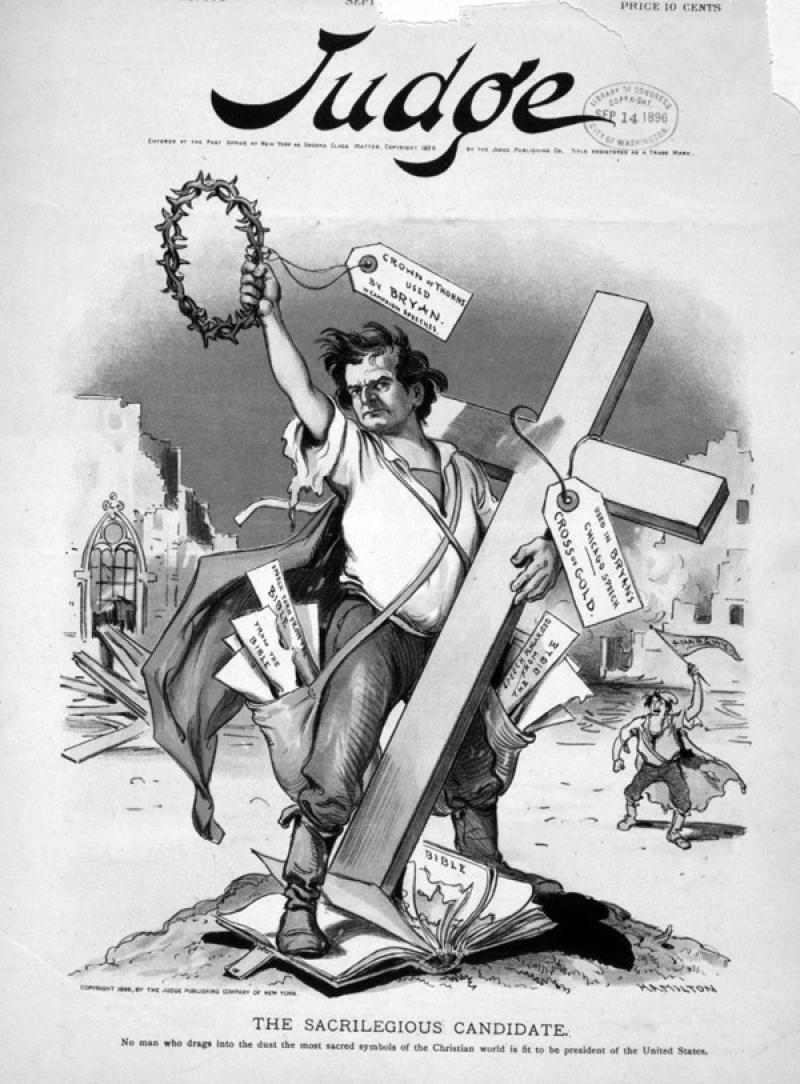ACLU HISTORY: THE SCOPES 'MONKEY TRIAL'



In March 1925, the Tennessee state legislature passed a bill that banned the teaching of evolution in all educational institutions throughout the state. The Butler Act set off alarm bells around the country. The ACLU responded immediately with an offer to defend any teacher prosecuted under the law. John Scopes, a young popular high school science teacher, agreed to stand as defendant in a test case to challenge the law. He was arrested on May 7, 1925, and charged with teaching the theory of evolution. Clarence Darrow, an exceptionally competent, experienced, and nationally renowned criminal defense attorney led the defense along with ACLU General Counsel, Arthur Garfield Hays. They sought to demonstrate that the Tennessee law was unconstitutional because it made the Bible, a religious document, the standard of truth in a public institution. The prosecution was led by William Jennings Bryan, a former Secretary of State, presidential candidate, and the most famous fundamentalist Christian spokesperson in the country. His strategy was quite simple: to prove John Scopes guilty of violating Tennessee law.
The judge, a conservative Christian, began each day's court proceedings with prayer and did not allow the defense to call any expert scientific witnesses. Darrow responded with an unusual trial maneuver that paid off. He called opposing counsel, Bryan, as an expert witness on the Bible and proceeded to publicly humiliate him over the course of days by questioning him on his literal interpretation of the Bible. Bryan fell into every trap and further undermined his credibility by stating, 'I do not think about things I do not think about. ...' He died a week after the trial, exhausted and publicly humiliated.
The trial lasted only eight days with the jury returning a verdict of guilty in less than nine minutes. John Scopes was fined $100. The ACLU hoped to use the opportunity as a chance to take the issue all the way to the Supreme Court, but the verdict was reversed by state supreme court on a technicality. Nonetheless, the ultimate result of the trial was pronounced and far-reaching: the Butler Act was never again enforced and over the next two years, laws prohibiting the teaching of evolution were defeated in 22 states. Americans, for the most part, viewed the religious fundamentalist cause as the loser in the trial and became more cognizant of the need to legally separate the teaching of theology from scientific education; anti-evolution laws became the laughingstock of the country.
The ACLU remained watchful, waiting for a chance to make their case before the Supreme Court with another test of anti-evolution laws. An opportunity finally arose, more than four decades later, when the ACLU filed an amicusbrief on behalf of Susan Epperson, a Zoology teacher in Arkansas, who challenged a state ban on teaching 'that mankind ascended or descended from a lower order of animals.' In 1968, the Supreme Court, in Epperson v. Arkansas, unanimously declared the Arkansas law an unconstitutional violation of the Establishment Clause of the First Amendment.
Resources:
 Article is LOCKED by author/seeder
Article is LOCKED by author/seeder



It's not complicated... unless a twisted mind intentionally makes it complicated.
But according to evangelicals, it's pseudoscience.
I need to re-up my ACLU membership.